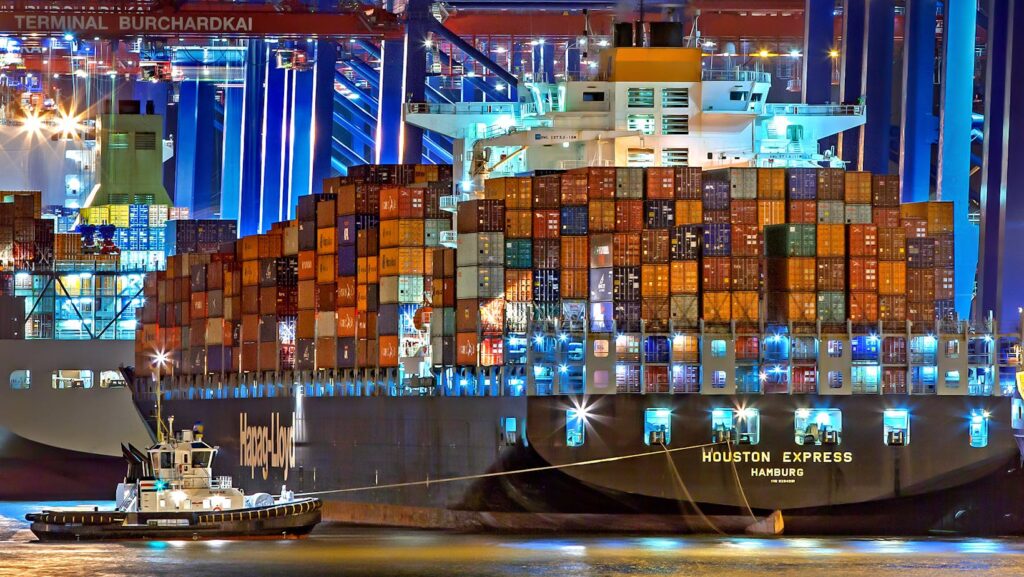In the dynamic world of e-commerce, international shipping has emerged as a crucial player. It’s a gateway that connects businesses with customers across the globe, breaking geographical barriers like never before. This article will delve into the intricacies of international shipping in the e-commerce landscape.
International Shipping in E-Commerce

Unveiling the critical role of international shipping in e-commerce, it emerges as a catalyst for market expansion and escalates sales opportunities.
International shipping acts as a conduit, linking businesses to a wider consumer base. This added avenue, not confined by geographical boundaries, allows e-commerce enterprises to cater to customers across the globe. For instance, a small-scale boutique in Scotland can effortlessly sell their goods to a customer in Japan, catapulting local businesses into the global market. This efficiency in cross-border transactions enhances brand visibility and potentially boosts customer loyalty.
Challenges of International Shipping
Even as international shipping fortifies e-commerce’s burgeoning horizons, it’s not devoid of its challenges. This section aims to dissect primary dilemmas that plague cross-border logistics.

Navigating international shipping requires a firm grasp over evolving legal and regulatory landscapes. Each country enforces unique laws and import regulations, adding complexities to cross-border e-commerce transactions. For example, products, taken for granted in one country, might be deemed illegal in others; dietary supplements are permitted in the U.S. but regulated in other nations. It’s a vital consideration for businesses expanding internationally. Additionally, the varying tax regulations and customs duties can distort an e-commerce entity’s profit margins and pricing strategies.
Logistics and delivery requirements differ significantly across global landscapes. Limited infrastructural development poses challenges in distant or rural regions, stalling the last-mile delivery. For instance, an Indian E-commerce platform might struggle with delivering products to remote areas of Africa due to infrastructure concerns. Additionally, tracking shipments gets arduous with multiple carriers involved, each with different tracking mechanisms. These difficulties inflict cost surges, impact customer satisfaction, and consequently, an e-commerce entity’s bottom line.
Solutions for Efficient International Shipping
To overcome the challenges of international shipping in e-commerce, solutions encompassing technology integration and strategic partnerships are crucial. The use of advanced methods can result in streamlined processes, better cost control, and improved customer satisfaction.
Technology Integration

Harnessing technology serves as a powerful tool to simplify the complexities in international shipping. It enables businesses to navigate the nuances of legalities and logistic issues across different countries. Examples include software for inventory management, shipment tracking, third party logistics and freight forwarding. An inventory management system can optimize warehouse operations, decreasing overhead costs tied to storage. Shipment tracking systems provide real-time visibility, assisting in maintaining transparency with customers during shipping delays. Furthermore, freight forwarding software can guide the transportation of goods, mitigating issues associated with multiple carrier handling.
Strategic Partnerships and Networks
Forging strategic partnerships brings leverage to e-commerce businesses in their international shipping operations. Partnership with global courier services caters to multiple regions, enforcing efficient delivery even to remote areas. Such collaborations count as UPS, FedEx, and DHL, which offer a wide range of parcel delivery services that extend to several countries. Additionally, forming networks with local suppliers and manufacturers can help minimize import regulations complications. For instance, Amazon’s FBA (Fulfillment by Amazon) program enables sellers to store their products in Amazon’s warehouses, making the handling of import regulations Amazon’s responsibility. Such alliances help to reduce logistical burdens, ensuring a smoother supply chain and potentially reducing shipping times and costs.
Conquering International Shipping
Navigating the complexities of international shipping in e-commerce isn’t a walk in the park. But with the right strategies, it’s possible to turn these challenges into opportunities. Technology integration can streamline processes, improve inventory management, and provide real-time shipment tracking. By forming strategic partnerships with global courier services and local suppliers, businesses can boost delivery efficiency and navigate import regulations with ease. Ultimately, these solutions pave the way for improved cost control, increased customer satisfaction, and enhanced operational effectiveness. So, for e-commerce businesses looking to expand their horizons, mastering international shipping is a must.

